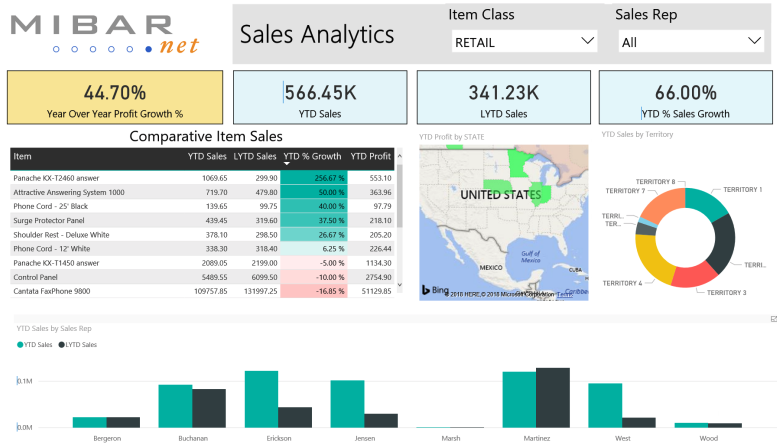Kayco
Industry
Food and Beverage
Solution
Customer Size
Executive Summary
A leader in the specialty foods market since 1948, family-owned Kayco maintains a commitment to product innovation, one-stop shop distribution, and customer support. Their multi-brand portfolio of Kosher and lifestyle products can be found in more than 30 countries, their footprint expanding with company investments in independent corporate partners. Company growth, along with ongoing product development and mobile sales team demands, has kept company leaders focused on continually upgrading its IT environment.
Emerging Needs for Business Insights
When Kayco’s executive and sales teams started experiencing the limitations of their Microsoft Excel-based BI system, they knew it was time to implement a more efficient means of leveraging their organization’s data. Not only was their connected spreadsheet content difficult to distribute and consume, users were beginning to question its reliability: Excel was known to crash, and sluggish data processing was taking valuable time away from both strategic and profit-generating activities. Salespeople, on the road almost exclusively yet tethered to their laptops, lacked on-demand access to the performance insights they needed to track, optimize, and focus their efforts—and move the business forward. Kayco called on MIBAR to provide a more flexible, up-to-date BI solution across company locations. MIBAR implemented the company’s ERP system in the early 2000s, followed by a CRM system, and had since been tracking Power BI’s software for critical product functionality releases they knew would meet Kayco’s growing sales analytics needs. The timing was ripe for Kayco to take advantage of the latest technology, and the project kicked off.
Releasing the Power of Real-Time Data
In less than 100 hours, MIBAR built an interactive, customized, and remarkably user-friendly reporting environment to provide Kayco’s users 24/7, cross-device and real-time access to their data. To avoid potential headaches during the transition period, they did careful planning to ensure Kayco’s ERP system was aligned where it needed to be with the Power BI software—and they even did some custom development work to translate the Gregorian calendar to the Jewish calendar, allowing for more relevant reporting. And importantly, since Kayco and their independent companies share a common database model, MIBAR was ableto change a few connection strings and move the system and all of its functionality to the other company locations for a fraction of the cost.
With a strong technological foundation and framework set up behind the scenes, the average user—the manager or salesperson without development skills—can easily log into their Power BI dashboard on their computer or mobile device and perform their own personalized data analysis, based on predefined or custom reports. They can view their data through a multitude of lenses (customer, item, sales rep/channel, brand, and category) and filter them further by various slicers (sales rep, customer, channel, category, sub category, brand, and item), drilling down to the exact information they need to take the next best action.
Today, each member of the sales team is in control of their business because they have the tools they need to take a more strategic approach to meeting their sales goals. With the ability to compare key metrics over time, they can spot opportunities within markets and with specific customers andbrands—and see where they’re slipping and need additional focus. Looking ahead, Kayco will take advantage of additional development work MIBAR is performing to make the Power BI dashboard and reporting even more flexible.

